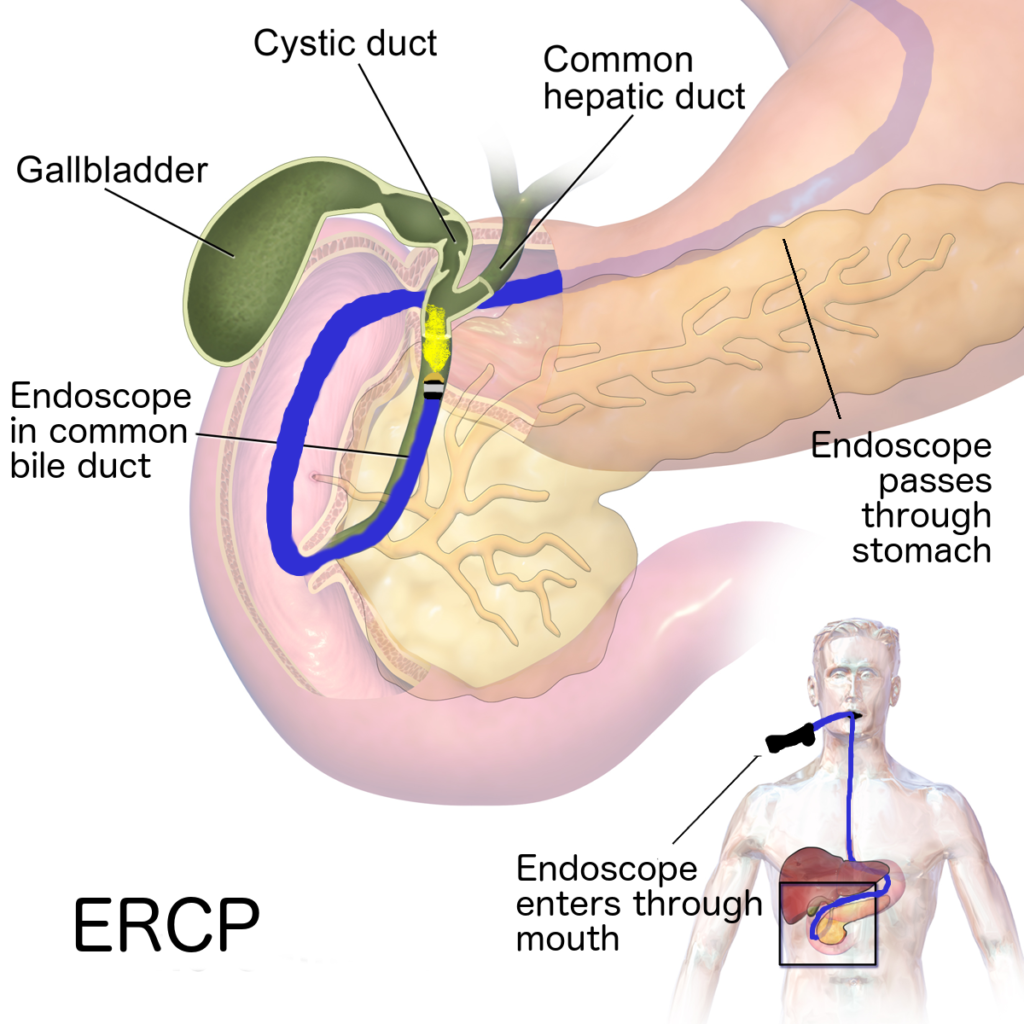ERCP
All About ERCP:
What is ERCP?
(Endoscopic Retrograde Cholangio-Pancreatography) ERCP is a procedure that allows your doctor to see the small tubes inside your body called the pancreatic and bile ducts. These tubes are near your stomach. They carry digestive juices from your liver and pancreas to the intestines.
For ERCP:
your doctor uses a flexible lighted tube called an “endoscope.” The endoscope, or scope, is about as thick as your index finger. It goes through your mouth into your stomach and the first part of the small intestine, called the “duodenum.” Then the doctor puts a very small, flexible plastic tube through the scope and injects some dye that shows up on X-rays. This procedure allows your doctor to see the ducts and how well they are working.

Why is ERCP Done?
Why ERCP?
Doctors do ERCP to find and treat problems in the pancreatic duct and bile duct. For example, you might have ERCP if your doctor suspects a disease of the pancreas or liver or a problem in the bile ducts.
You might also have ERCP to find the cause of abnormal results from a blood test, ultrasound, or CT scan or to fix a problem that was identified on one of these tests. Finally, ERCP can help your doctor decide if you need surgery and if so, which surgery is best.
The most common reasons for ERCP include:
• Yellow skin or eyes (jaundice), light stool and dark urine
• Stones in the bile or pancreas duct
• A lesion or tumor in the pancreas, gallbladder, or liver
Your doctor might do ERCP before or after gallbladder surgery in specific situations. For example, they can find and remove gallstones from the bile duct and sometimes from the pancreas. ERCP can also help find cancer or non-cancerous lesions. If your bile duct is blocked, your doctor can use ERCP to put in a small plastic tube called a “stent”. This keeps the duct open and digestive juices flowing. Finally, ERCP can help find and treat problems following gallbladder surgery.
